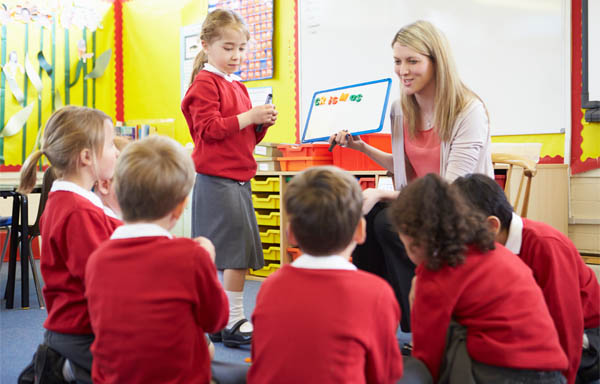Looking forward to settling in

We’re on the brink of the summer holidays – in fact, at the time of writing, some schools will already have broken up – but while we all deserve to breathe a sigh of relief and take a moment (or two) to centre ourselves, this time of year also brings with it a unique opportunity for prepartion the likes of which won’t be seen for another 12 months. That is an opportunity to think ahead to September and lay plans for that all-important time of “settling in”. This year that process may seem more daunting than usual, but schools should remember that they have plenty of experience to draw on in this area. With that in mind, staff (and indeed parents) should be reassured that “settling in” in 2020 is not a fundamentally different process, we simply need to remember what has worked well in the past, do more of those things, and build on those past successes.
Therefore, as we look forward to September, we should remember that this is a transition for all pupils, even if there has been minimal change. Every pupil will be embarking on some new challenge. Transitions are often especially challenging for pupils with SLCN. These pupils may have difficulty understanding the information that has been provided, retaining that information, reasoning about the forthcoming changes and formulating questions they may have to ease their concerns. So for pupils with SLCN, staff need to be especially conscious of the value that preparing now can have for a smooth start in September, and use this time to consider their approach.
Firstly, schools need to provide opportunities to prepare students for the new year as much as possible and with as much notice as possible. Change – any change – can be a harbinger of anxiety for all of us and the best way to allay those fears is to give pupils and parents plenty of information about what next year will look like before the questions are even asked. Schools can draw together information about routines and expectations, and share photographs of classrooms, common areas and key staff so that parents and pupils can know what to expect. Subscribers of Infant Language Link or Junior Language Link can download our fully editable ‘Back to School Book’ on their homepage to help them structure this process.
Secondly, take time to consider school routines, both old and new, so that when school begins you can quickly foster a sense of structure and normalcy. There’s nothing like knowing what to do, how to do it, and what comes next to make people feel at home. For pupils, building structure and routines into all parts of the school day can help them to quickly feel safe and secure, which will in turn promote ‘readiness to learn’.
Thinking of the new term itself, staff should reflect on the learning and experiences that children have had during their time away from school. Many children will have had positive experiences and have spent their time learning valuable life skills, such as learning to ride a bike, bake a cake (and all the linguistic and mathematical skills involved in following those instructions!), or refining their artistic talents. Rather than focussing solely on what has been missed, choose to start the year of on an optimistic note by building on the positive experiences which have been had, incorporating those into the classroom, and making them the foundation of learning going forward.
Finally, remember that relationships with staff and peers are the cornerstone of a child’s wellbeing at school. This will not be a new revelation to any reader, but it bears repeating nonetheless. Pupils who have been away from school for an extended period will inevitably had fewer opportunities to forge bonds with the people who they now find in their classroom. For some, that is a scary thought. Children will benefit from developing relationships with each other as well as their teachers and support staff so that they feel happy and comfortable at school, but they may need help from adults to facilitate new friendships. Schools already have the resources to support pupils in this regard, but it is certainly worth bearing in mind just how wide a pool of skills there is to draw from. Consider colleagues who have experience with running social skills interventions and ask whether those transferrable skills could be valuable for a wider audience.